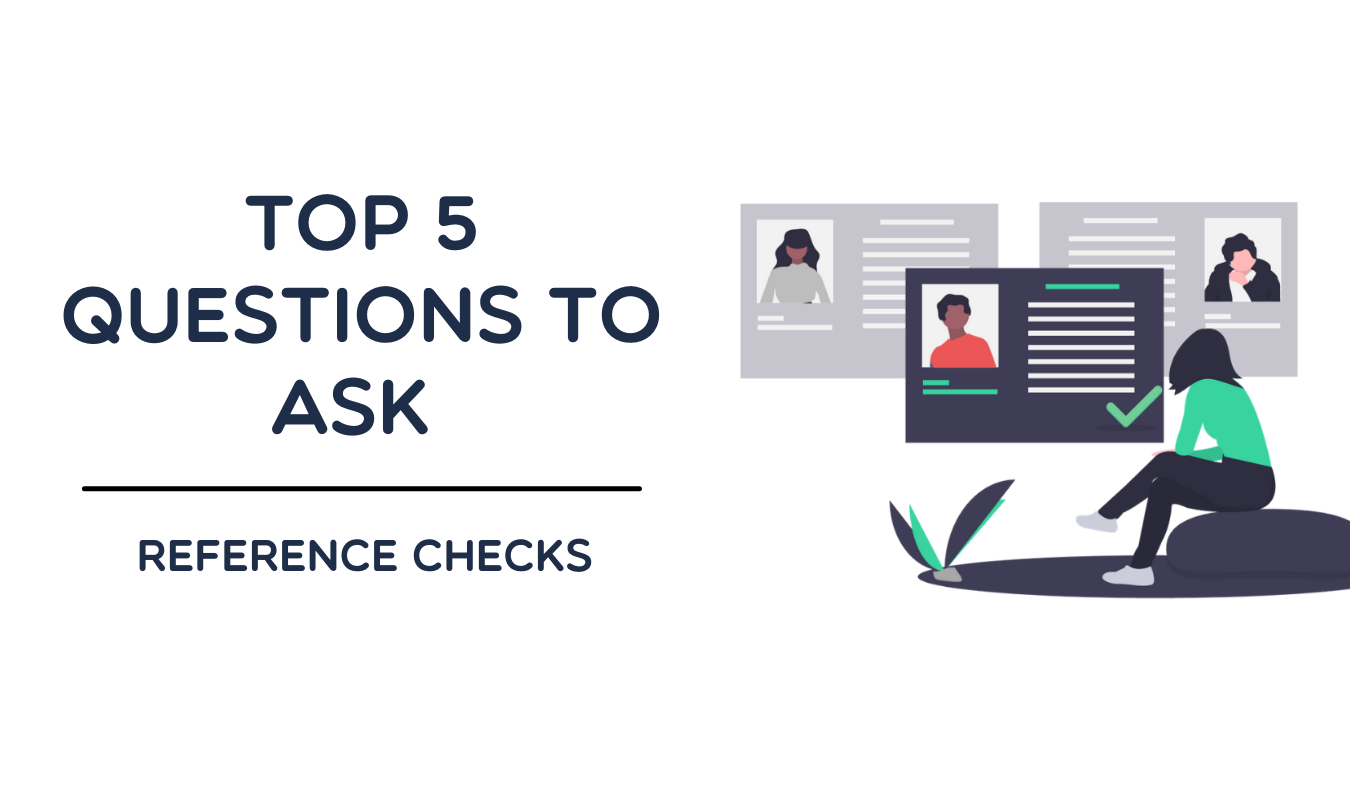Top 5 Questions to Ask During a Reference Check
Everyone knows reference checks aren't the best ways to gain actionable data. How do we get around the inherent bias?

The first thing to do when conducting a reference check is to understand why you are doing it. If you are doing a reference check involuntarily, it's likely that you are forced into it as a compliance requirement. This article is to showcase how to turn that useless reference phone call into a tool to gather actionable insights.
We all use reference checks to give us assurance the hire we made is not anything weird. We would ask things like “How does it feel like to work with the person”, “What’re their significant experiences”, and “how likely are you to rehire them?” If you have done a couple of these phone calls, you’ve seen circumstances where the reality of the person is 180-degrees from the picture painted by the referees, and we all come to the conclusion that reference check is useless.
That’s how it always has been, but it doesn’t have to be.
Every tool is useful if used in the right place and in the right context. Reference calls are a data collection problem.
- Plan the objective of the reference check:
Before the call, it is important to know what data are you collecting. If your objective is to know how their previous colleague feels about the person, then you have achieved your goal. But we rarely care about the past and instead want to know how to ensure that the person you hire integrates into your current work process and culture.
If you have planned your job description well, then you have already considered the objective of your reference check. First, communicate with anyone who has interviewed the person - be it Talent Acquisition, Recruiters or Hiring Managers. What is something that they still don’t know about the candidate or are doubtful of?
In the title, I’ve promised you the top 5 questions to ask referees, so here are some of the questions where referees are the best sources of information:
- How should I manage the candidate to get top performance?
- How well does the candidate handle stressful situations?
- Give us an example of a time candidate bounced back from failure.
- Is there anything you wished the candidate did more often?
- Is there anything I haven’t asked you about regarding the candidate that you think I should know?
You might have noticed there is a trend in these questions. They’re all something you can’t test for in an interview. It's something only the opinion and perspective of someone who has observed the candidate for a long time would know. The collection and leveraging of this information are ultimately what is going to ensure your onboarding success.
2. Matching which referee is best suited to answer these questions:
After setting the objective and goals, try to visualise and understand the context, would the referee you plan to reach out to be the best person to answer your question? When posed a question, people have the tendency to find an answer just for the sake of answering, or worse, you might end up with a frustrating “no, I do not have an answer to that question” response. Qualifying referees is of the utmost importance.
For example, if you would like to find out more about the person’s work productivity in-person as opposed to being in a virtual environment, then contacting a direct report or colleague who worked with them daily would be the best. Anyone else would not really have had the chance to consistently view them in action.
3. Conducting the reference check and adapting during the call:
Here, we get to the most fun part of reference checking. Before jumping into any questions, remember to give some context about who you are, why you’re reaching out and describe the job and responsibility that the candidate is taking on. This way, your referee will be able to be more selective about information most relevant to you. You have formulated all your questions; all you have to do now is listen attentively. Try to catch any moments of hesitation, and follow up on the same question.
So, what are the top 5 questions to ask when doing reference checks? It really depends on the context of (1) which mandate you’re looking to fill and (2) the referee’s relationship with the candidate. If that seems like too much of a hassle, outsourcing to reference check companies like Avvanz, Sterlingrisq or automated tools like Vita Verify may well be your best bet. For automated tools, if you find the information useful, you can even consider doing it at an earlier stage in your hiring processes to capitalize on its scalability.
